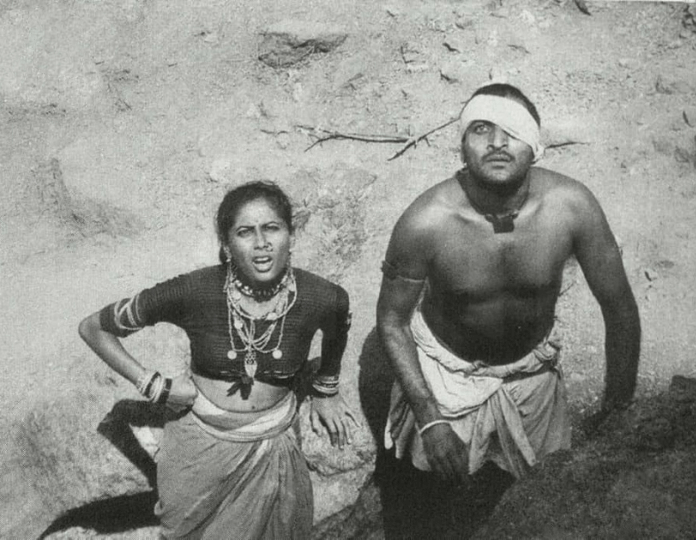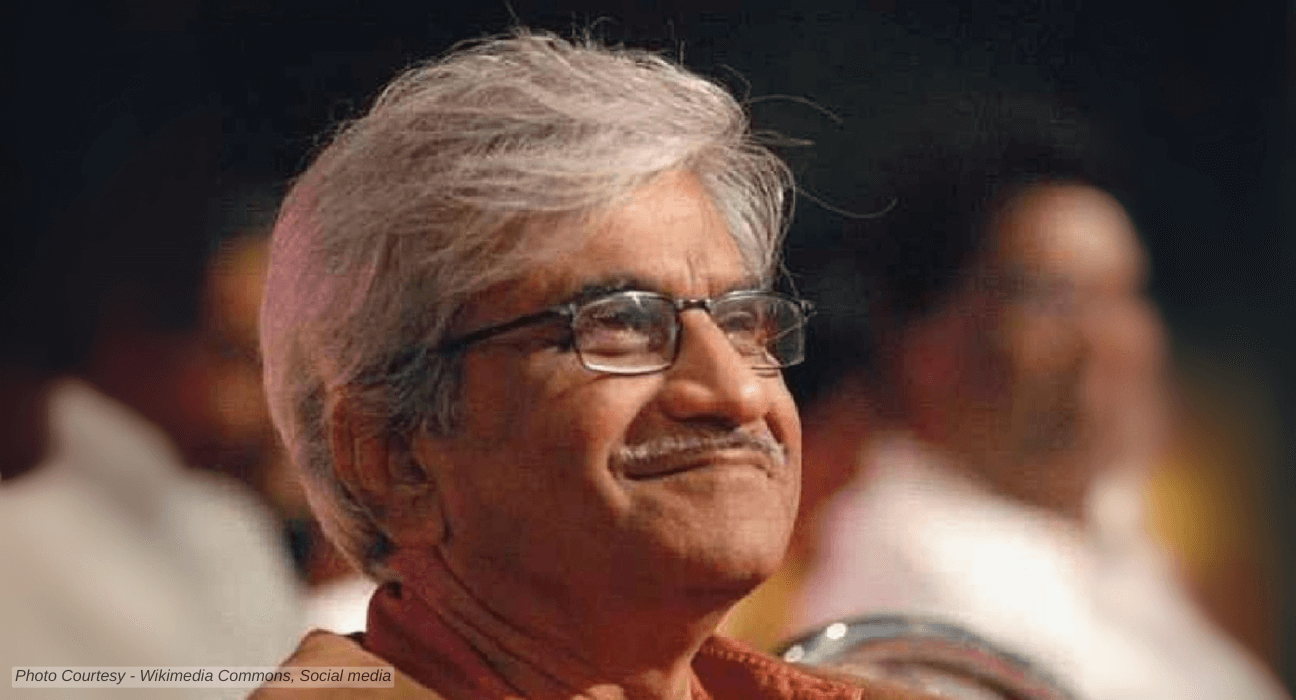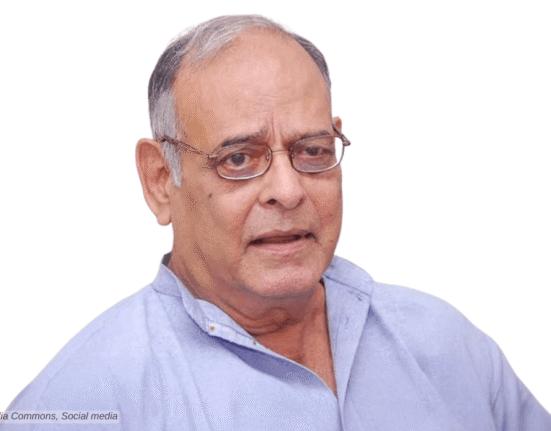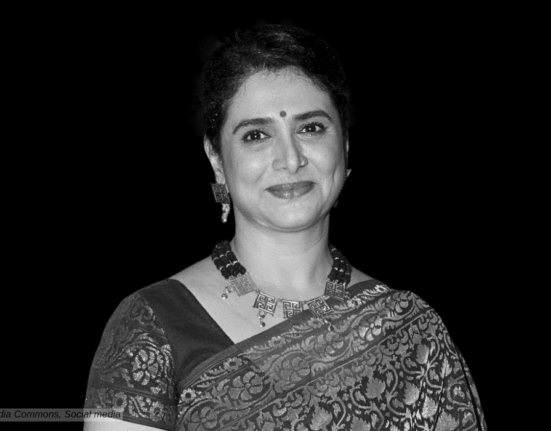One of the greatest Marathi filmmakers of his era, Jabbar Patel is a distinguished personality in the parallel cinema movement and Marathi theater. His work spans socially relevant films and plays, earning him a lasting legacy.
Early Life and Career
Jabbar Patel was born on June 23, 1942, in Pandharpur, Maharashtra. His father worked with Indian Railways. Jabbar attended Haribhai Deokaran High School in Solapur. He pursued medical studies at B. J. Medical College in Pune. He was a successful pediatrician before fully committing to the arts.
Jabbar was active in theater during his school days. He lived with Shriram Pujari in Solapur, observing theater figures. Some of the early plays he did include “Tujha Aahe Tujpashi ,” “Chaphekar,” and “Hadacha Zunzar Aahes Tu,” among others. He joined the Progressive Dramatic Association (PDA), founded by Bhalba Kelkar, during college. He directed “Ashi Pakhare Yeti” for PDA, a commercial success. In 1972, he split from PDA with Mohan Agashe and Satish Alekar to stage “Ghashiram Kotwal,” marking his theater breakthrough.
Jabbar Patel – The Filmmaker
Jabbar Patel started his film career as an assistant to Dada Kondke for films like Ekta Jeev Sadashiv and Haryana Narya Zindabad. He made his film debut with Samna (1975), starring Nilu Phule, Shriram Lagoo, Usha Naik, Mohan Agashe, and Smita Patil. The film, written by Vijay Tendulkar, addresses the issues of rural exploitation, the political-corporate nexus, crime and struggling through non-violent means. Initially a flop, Samna went on to be selected for the Berlin Film Festival, where it was nominated for a Golden Berlin Bear.

Jabbar’s next was the musical drama “Jait Re Jait (1977),” starring Mohan Agashe, Smita Patil and Nilu Phule. The philosophical film was a celebration of tribal music and culture. It is one of the most successful Marathi films of all time. The film’s songs put to music by Hridaynath Mangeshkar are the highlight of the film.
The songs like “Nabh Utaru Aala, Chimba Tharthar Valla,” “Mee Raat Taakli, Me Kaat Taakli” and “Aamhi Thakar Thakar” are considered the classics even today. The film won the National Award for Best Feature Film in Marathi.
Jabbar’s Sinhasan, based on two novels by Arun Sadhu, examines political corruption and power. The film has a big cast, which includes Nilu Phule, Shriram Lagoo, Mohan Agashe, Reema Lagoo, Usha Nadkarni and Nana Patekar. Released in 1979, it uses a montage style with 35 characters to portray a chief minister’s downfall. The story critiques bureaucracy and media influence. It secured the National Film Award for Best Feature Film in Marathi.”



Harindranath Chattopadhyay – The Actor
Umbartha (1982) featured Smita Patil as a reform home superintendent, exploring women’s issues. It was based on Shanta Nisal’s autobiographical novel “Beghar.” It was Jabbar Patel’s third consecutive film, which won the National Film Award for Best Feature Film in Marathi. In 1986 Jabbar made his first Hindi film, “Musafir,” starring Rekha, Naseeruddin Shah and Mohan Agashe. The film based on Vijay Tendulkar’s Marathi play Ashi Pakhare Yeti, did not have a theatrical release; it was released on VHS.
In 1992, Patel directed the Marathi film “Ek Hota Vidushak,” starring Laxmikant Berde, Madhu Kambikar, Nilu Phule, and Varsha Usgaonkar. It is the story of Aburao, a talented clown who left his pregnant girlfriend and his Tamasha troupe for a career in films. The film won the National Film Award for Best Feature Film in Marathi. It also won the National Film Award for Best Choreography.
Jabbar Patel’s “Mukta (1994)” stars Sonali Kulkarni with Shriram Lagoo, Vikram Gokhale, Caleb Obura Obwatinykaas, and Avinash Narkar. The film, which deals with the issues of caste-based discrimination in India and parallels it with racial issues in the USA, won the National Award for Best Feature Film on National Integration.



Later Films
Jabbar Patel’s next was Dr. Babasaheb Ambedkar (2000); it traces the life of B.R. Ambedkar (Mammootty) from childhood to leadership. The story highlights caste struggles and constitutional draughting. The film earned the National Film Award for Best Biographical Film. The portrayal of the visionary Dalit leader earned Mammootty the National Award for Best Actor. Jabbar directed the Bahujan movie Teesri Azadi in 2006, which was released on YouTube.
His last film came in 2014 when he directed “Yashwantrao Chavan: Bakhar Eka Vaadalaachi,” starring Nana Patekar, Ashok Lokhande, Lubna Salim, and Om Bhutkar.
Jabbar Patel also directed many documentaries, like Maharashtra (1987), Mi SM (1987), Pathik (1988), Laxman Joshi (1989), Forts of Maharashtra (1990), Indian Theatre (1990), Dr Babasaheb Ambedkar (1991), and Antardhwani: Pandit Shiv Kumar Sharma (2007). His documentary “Hans Akela – Kumar Gandharva (2006),” won the National Film Award for Best Biographical Film.
Pioneers of Parallel Cinema
Jabbar is one of the pioneers of parallel cinema of the 1970s and 80s. He employs a realistic approach, rooted in his theater background. He uses natural lighting and minimal sets to enhance authenticity. His editing favours long takes, avoiding quick cuts at a measured pace. He integrates music and dance, especially in tribal contexts, to deepen culture. His scripts blend dialogue with visual storytelling, reflecting his theater influence. Actors like Mohan Agashe note his focus on rehearsals to perfect performances.
Jabbar tackles rural exploitation in Samna (1975), where a teacher fights liquor mafia corruption. Jait Re Jait (1977) celebrates tribal identity, portraying a Warli community’s resilience. Sinhasan (1979) critiques political corruption through a chief minister’s downfall with 35 characters. Umbartha (1982) addresses women’s empowerment, following a superintendent’s reform efforts. Dr Babasaheb Ambedkar (2000) explores social justice, tracing the Dalit leader’s life. His narratives often highlight marginalised voices and systemic issues.
Personal Life
Jabbar uses ensemble casts to reflect societal layers, as seen in Sinhasan’s montage style. He collaborates with writers like Vijay Tendulkar to craft dialogue-driven plots. His camera work focuses on character reactions, building tension organically. He adapts historical events, like Ambedkar’s journey, with archival accuracy. His theater roots shape blocking and stage-like framing in films.
Jabbar Patel is married to a gynaecologist, and together they had two daughters. His personal life remains very private, and not much public record has been found of his family. He resides in Pune, maintaining a low profile. Jabbar Patel remains active in theater and festivals. He chairs the Pune Film Foundation and directs the Pune International Film Festival.
Jabbar Patel on IMDB













Leave feedback about this